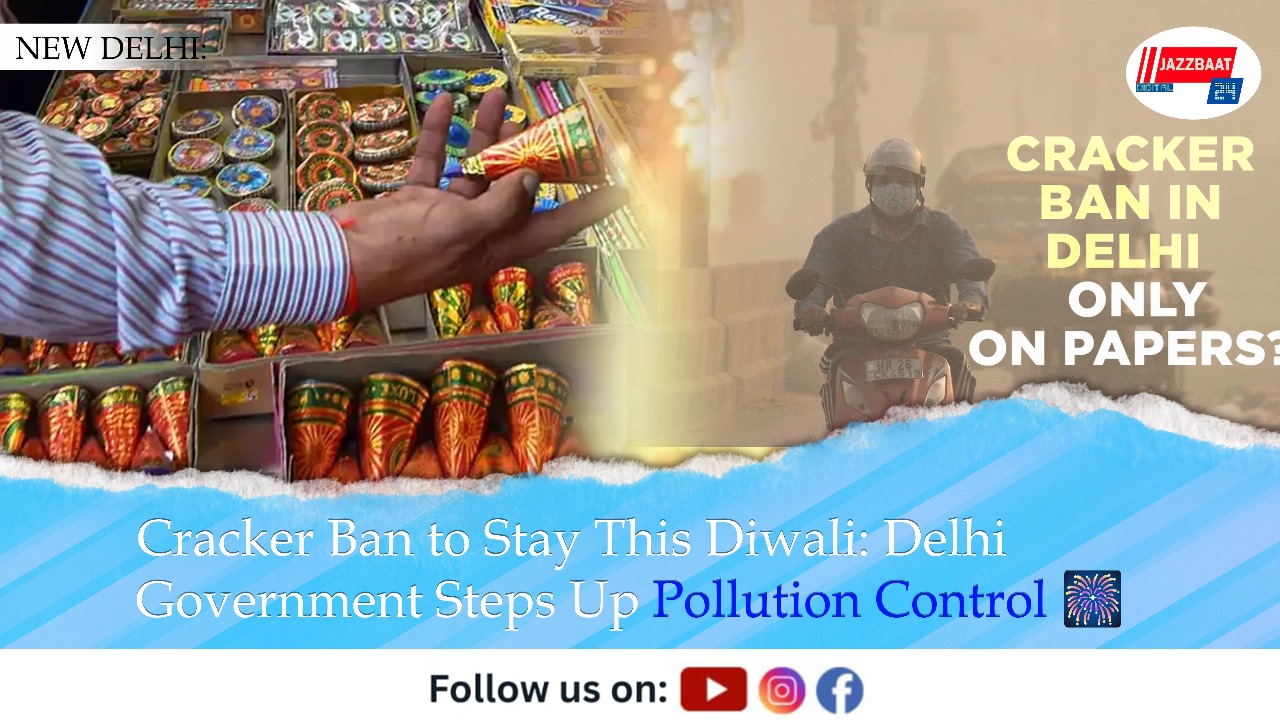
NEW DELHI: As Delhi braces for its annual battle with post-monsoon pollution, the city government has decided to continue with the blanket ban on firecrackers during the upcoming Diwali season. Officials confirmed that the prohibition on manufacturing, storing, selling, and bursting all kinds of firecrackers, including so-called “green crackers”, will remain in place this year, citing alarming air quality levels and the need to prevent further deterioration during the festival period.
The decision, in line with directives from the Delhi Pollution Control Committee (DPCC) and the Supreme Court’s previous orders, aims to curb the seasonal spike in air pollution that typically engulfs the National Capital Region (NCR) in November. Environment Minister Gopal Rai stated that the government’s top priority is public health, and strict enforcement will ensure that the gains from recent pollution control efforts are not undone. “This is not about curbing festivities, but about saving lives,” Rai said, urging citizens to celebrate Diwali with lights and not smoke.
To implement the ban effectively, the Delhi government has launched a multi-pronged action plan under its Winter Action Programme. Special enforcement teams comprising officials from the DPCC, Delhi Police, and the Revenue Department have been deployed to monitor markets and warehouses across the city. Raids are being conducted to seize illegal firecracker stocks, and violators face heavy fines along with possible imprisonment under the Air (Prevention and Control of Pollution) Act.
In addition to crackdowns, awareness drives are being rolled out across schools and residential areas. The government plans to collaborate with RWAs, NGOs, and social media influencers to promote eco-friendly Diwali celebrations. The Delhi Pollution Control Committee is also intensifying real-time monitoring of pollution levels at hotspots, while the Transport Department has strengthened checks against polluting vehicles and construction dust.
This year’s Diwali preparations also coincide with the Graded Response Action Plan (GRAP) being enforced across Delhi-NCR, which restricts certain industrial activities and construction work depending on air quality levels. Meanwhile, neighbouring states like Haryana and Uttar Pradesh have been urged to coordinate on controlling stubble burning, a major contributor to Delhi’s winter smog.
Despite previous court rulings allowing the use of certified “green crackers,” officials have clarified that Delhi’s local ban supersedes such permissions due to the city’s fragile air conditions. The government has urged citizens to opt for symbolic celebrations using diyas, LED lights, and community clean-air campaigns.
With air quality already hovering around the “poor” category and likely to worsen in the coming weeks, environmental experts have welcomed the move, calling it essential though not sufficient. They have stressed the need for sustained measures beyond Diwali, including better waste management, cleaner fuel adoption, and stricter vehicular emission norms.
As Delhi gears up for the festival of lights, the government hopes citizens will choose cleaner celebrations, turning Diwali into a festival that truly spreads light, not smoke.